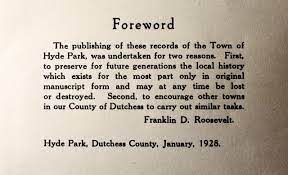
We are a story-telling species. But what story should We the People tell? To create a national narrative for the 21st century is an awesome challenge, perhaps an impossible one given our divisions today. While few countries in the world have had one continuous form of government for 250 years, we are at a point where even to celebrate that event is contentious and divisive.
The challenge to create a national narrative is too daunting for an individual historian.
What then can be done?
I suggest to start at the very beginning a very good place to start and to take it one step at a time. For history in the United States that means the local historian and historical society. The local historians have walked their communities, seen the sites, heard the stories, and kept the documents. The creation of a national narrative should begin small.
Every local historian and historical society should tell the story of their locality from Ice Age to Global Warming. Nature sets the stage and humans write the play while altering the stage. The local historian and historical societies are the ones best positioned to tell the story of their own communities.
However, local historians and historical societies typically are not trained to tell this story. Most likely they do not want to tell it either. There are risks involved. For example, as people celebrated the centennial of women’s suffrage, imagine finding out what your great-grandfather thought about it! Suppose you are a descendant of some one who did something disreputable! Regardless of one’s theological beliefs, in the world of history sins are inheritable. So it is understandable why people do not want to delve into the past and to let sleeping dogs lie.
To create a national narrative starting at the local level, people need help. The history infrastructure needs investment and training, the local historians and historical societies need guidance. New societies need to be created. The current system isn’t working as well as we need it to work.
To illustrate the process, consider the situation here. By state law every municipality in New York is required to have an historian. This mean every village, every town, every city, and every county is obligated under the law to have an historian. The law frequently is ignored including in this county. Even when municipalities comply, they often provide the historian with no or minimal resources. A municipal historian typically does not have a municipal mailing address, email address, business card or place to work except at home. Imagine if the chief of police was forced to operate under the same conditions. In addition, the municipal historian is not funded for the dues to join the state organization of municipal historians or to attend the annual conference. The state provides no guidelines on what the municipal historian actually is supposed to do based on the population of the community and the technologies of the 21st century.
Historical societies face similar problems. Although they are chartered by the State Education Department just as schools and libraries are, they are not treated the same way. The schools and libraries are public organizations with government employees and receive state funding. By contrast, historical societies are private although they may operate in a municipally-owned building. The people are dedicated, hard-working usually volunteers who love what they do but need help. The New-York Historical Society and the American Museum of Natural History are not the norm. Think of the municipal historian in your own community if you have one or the municipal historical society to get a better idea of the challenges involved.
We need a new model for the 21st century. We need leadership from the state and federal governments on what should be done, the training to do it, and the resources to do it effectively. Where are the jobs for the public historian graduates? Where are the circuit historians who could serve five small communities each week? Why should we have to reinvent the wheel every time there is a major anniversary?
The musical Hamilton famously asks who will tell the story? Who will train the teachers in the history of their community, their county, their city, and their state? Who will develop the curriculum, the professional development programs, the walking tours? Who will identify the local history signs that are needed? Who will weave the neighborhood, county, city, and state, narratives into one? We need a We the People Will Tell the Story Funding Act.






Thx for keeping NYS history so close to our hearts…
compelling ! Well done.